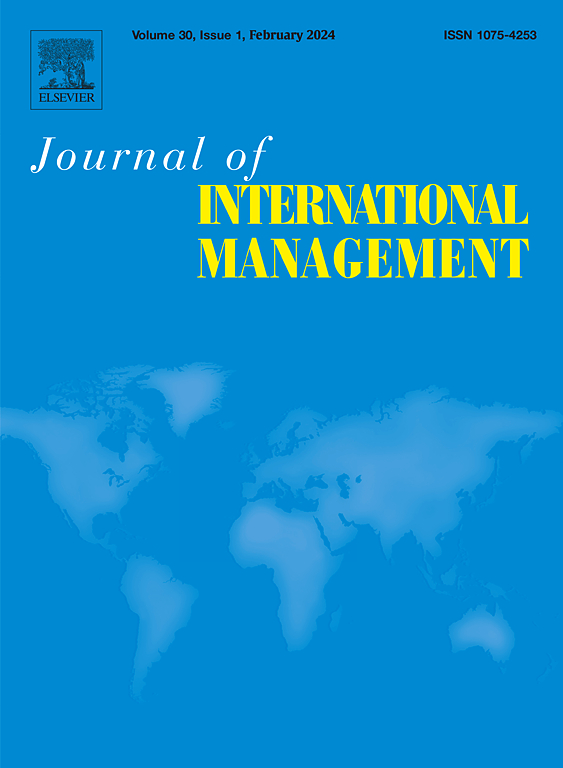公司治理、董事会网络与公司绩效
IF 4.9
2区 管理学
Q1 MANAGEMENT
引用次数: 0
摘要
本研究利用代理理论和资源依赖理论,运用多理论框架重新审视公司治理与公司绩效的关系。专注于印度的新兴市场公司,我认为董事会独立性的好处——传统上强调的是监督和资源获取角色——取决于其他治理机制和网络结构。利用印度2689家上市公司的纵向数据集,我发现董事会独立性、CEO和董事会主席角色的分离以及家族所有权对公司绩效有积极影响。此外,董事会网络中心性较高的公司表现更好,可以获得重要的财务、制度和知识资源。重要的是,研究结果表明,在高家族所有权和强董事会网络联系的情况下,董事会独立性的积极影响减弱,这表明存在一种基于权变的治理-绩效关系。本研究通过强调新兴市场公司治理有效性的背景性质,为公司治理文献做出了贡献。本文章由计算机程序翻译,如有差异,请以英文原文为准。
Corporate governance, board networks and firm performance
This study revisits the corporate governance–firm performance relationship using a multi-theoretic framework, drawing on agency theory and resource dependence theory (RDT). Focusing on emerging market firms in India, I argue that the benefits of board independence, traditionally emphasized for monitoring and resource access roles, are contingent upon other governance mechanisms and network structures. Using a longitudinal dataset of 2689 publicly listed firms in India, I find that board independence, separation of the CEO and board chair roles and family ownership positively influence firm performance. Additionally, firms with greater board network centrality perform better, accessing vital financial, institutional, and knowledge resources. Importantly, the findings reveal that the positive effects of board independence are diminished in the presence of high family ownership and strong board network ties, suggesting a contingency-based governance-performance relationship. This study contributes to corporate governance literature by highlighting the contextual nature of governance effectiveness in emerging markets.
求助全文
通过发布文献求助,成功后即可免费获取论文全文。
去求助
来源期刊

Journal of International Management
MANAGEMENT-
自引率
9.80%
发文量
67
审稿时长
81 days
期刊介绍:
The Journal of International Management is devoted to advancing an understanding of issues in the management of global enterprises, global management theory, and practice; and providing theoretical and managerial implications useful for the further development of research. It is designed to serve an audience of academic researchers and educators, as well as business professionals, by publishing both theoretical and empirical research relating to international management and strategy issues. JIM publishes theoretical and empirical research addressing international business strategy, comparative and cross-cultural management, risk management, organizational behavior, and human resource management, among others.
 求助内容:
求助内容: 应助结果提醒方式:
应助结果提醒方式:


